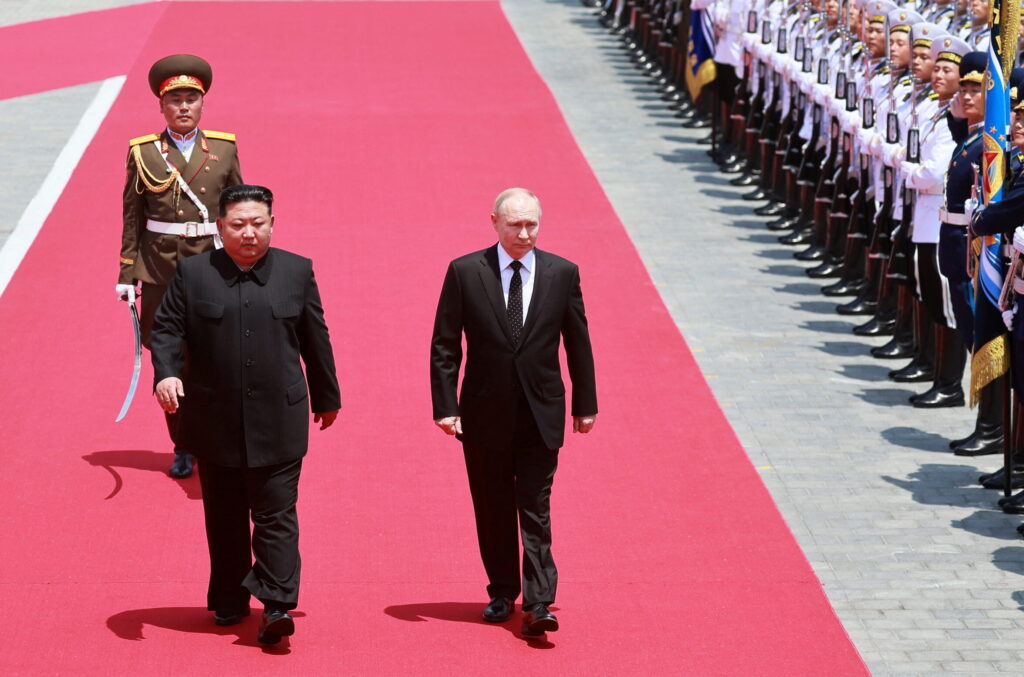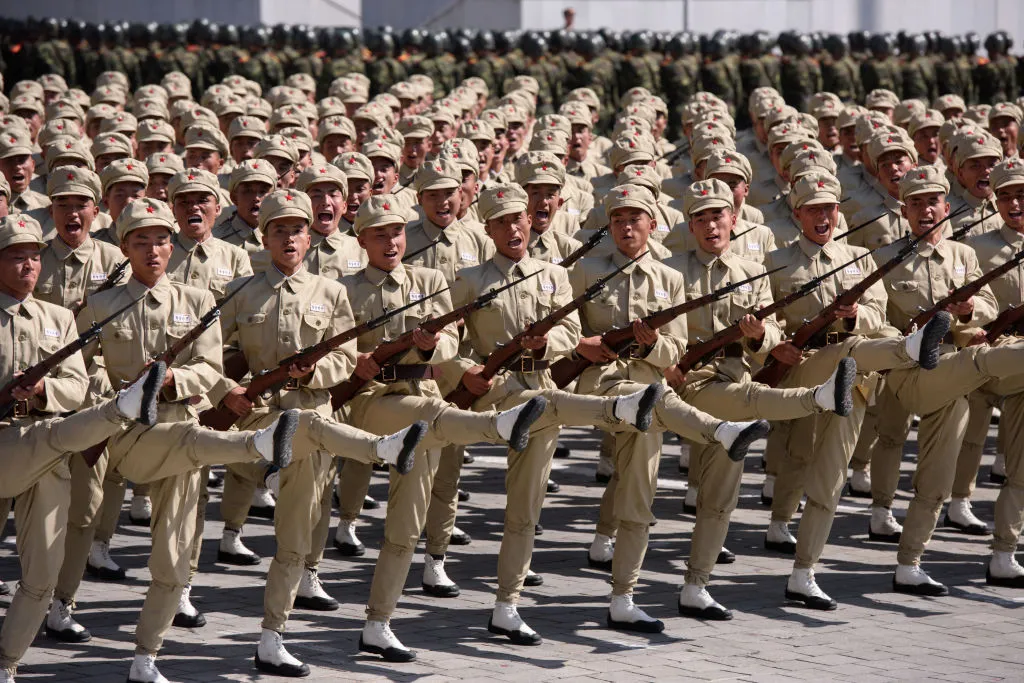A Pact of Convenience and Dire Consequences All Around
"They are too young and won't understand exactly what it means. they'll just consider it an honour to be selected as the ones to go to Russia among the many North Korean soldiers.""But I think most of them won't likely come back home alive."Lee Woong-gil, former member North Korean Storm Corps"Kim Jong Un is taking a big gamble. If there are no large casualty numbers, he will get what he wants to some extent. But things will change a lot, if many of his soldiers die in battle.""North Korean soldiers would see going to Russia as a once-in-a-lifetime opportunity."Ahn Chan-il, former North Korean army first lieutenant, now head, World Institute for North Korean Studies, Seoul"My heart ached [when he saw a video released by Ukraine showing undersized North Korean soldiers likely in their late teens or early20s].""None would think they are going to Russia to die.""But I think they're cannon fodder because they will be sent to the most dangerous sites and will surely be killed."Choi Jung-hoon, former first lieutenant, North Korea military
 |
Reportedly, elite special forces are among the thousands of young soldiers sent to Russia by North Korea to join Moscow in its territorial expansion invasion and fighting in Ukraine. Speculation overall is that they are headed to mass death. With no combat experience, no familiarity with the terrain in a country unknown to them, the expectation is that they will be ordered to the most active and deadly battlefields, and soon. The language barrier will be of no assistance in coordination.
According to observers, some of the dispatched troops are already at the front. Viewed from the perspective of North Korean expectations, these still-raw soldiers may view their Russian tour with pride representing a rare opportunity to earn a good salary, to see a foreign country for the first time in their lives, and when all is done, earn preferred treatment back home for their families.
Concerns over North Korea's impending participation in the Russian-Ukraine war were exacerbated this week once the Pentagon confirmed that North Korea sent roughly 10,000 troops to Russia, scheduled to fight against Ukraine "over the next several weeks". Over 3,000 North Korean soldiers were moved close to battlefronts in western Russia, according to the presidential office in South Korea. A move that could signal a serious escalation in the war.
The fact that North Korea must be absorbed with its own security reflecting the standoff with the United States and South Korea related to its nuclear program, led to outside observers being caught unaware at this turn of events. Intelligence has it that large casualty numbers for North Korean troops would represent a major blow politically for the country's ruler whose government has not yet confirmed the deployment.
 |
| North Korean soldiers march during a rally on Kim Il Sung Square in Pyongyang, North Korea. Photo for illustrative purposes. (Ed Jones/AFP/Getty Images) |
Speculation by experts entertain the notion that Kim Jong Un may view this agreement with Russia as a method to obtain foreign currency and security support from Russia as a tradeoff for joining the Russian war against Ukraine. A gradual economic recover over the past 30 years has been helpful, but defectors speak of an average monthly wage for North Korean workers and soldiers amounting to under $1, in an aura of state rationing remaining largely inoperative.
All costs related to the deployment of North Korean troops, including wages, estimated by observers to be about $2,000 per month for each person, is expected to be picked up by Russia. Of that windfall, about 90 to 95 percent of the stipends are likely earmarked for Kim's state coffers; the pitiful remainder to the soldiers themselves. One year of service in Russia would earn a North Korean soldier $1,200 to $2,400; enough to entice many young soldiers to volunteer.
Serving on foreign soil, according to a former first lieutenant in the North Korean army, will attract many soldiers eager to see other counties for the first time, where normally North Koreans are barred from accessing foreign news and require state approval to move from one province to another even within the country itself. Construction, logging and other workers sent abroad are considered state "slaves" by international human rights groups.
Their earnings in foreign currency are earmarked for the state. Defectors, on the other hand, attest that such overseas jobs are an improvement over remaining in North Korea. An expectation subject to change should soldiers be exposed to the sight of their colleagues dying in large numbers. Trained on the Korean Peninsula's mountainous terrain, the soldiers are unfamiliar with the largely flat-plain battlefields in the Russian-Ukraine war.
And nor do they quite comprehend modern warfare, including the use of drones, given that North Korea, since the end of the 1950-53 Korean war against South Korea, has not fought a large battle. Size also matters as does inexperienced youth. Famously North Koreans stunted from lack of adequate nutrition in a country where food scarcity is a reality, when scarce state funding is allocated to the costly development of ballistic missiles in preference to feeding the populace, produces young men whose mental faculties as well as their physical development has been deleteriously impacted.

Labels: Deployment of North Korean Soldiers to Russia/Ukraine, Extending/Widening the Conflict, Russia/North Korea Pact, Russian Invasion of Ukraine

<< Home